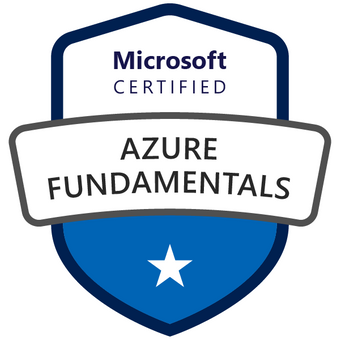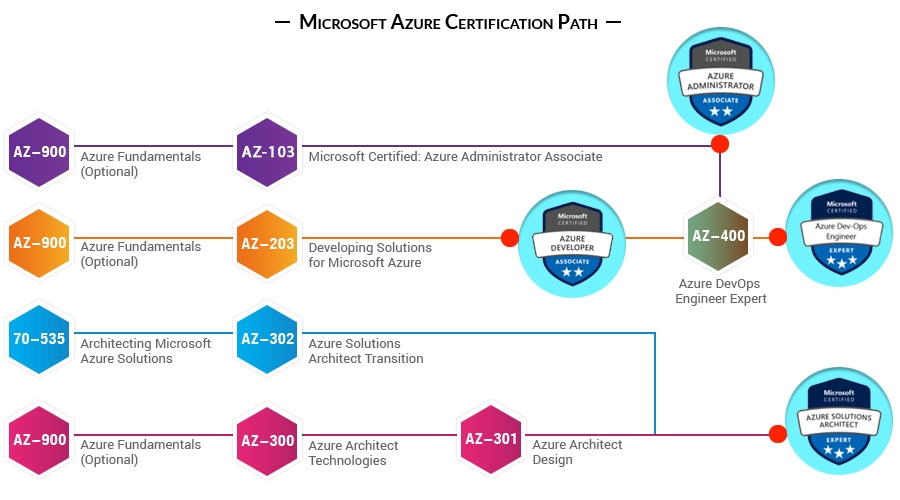Clear Az-900 certification 2023 in first attempt with most affordable dumps. 1dollarcart provide a one-stop solutions for dumps AZ-900 Microsoft Azure Fundamentals.
How to Book the MICROSOFT AZ-900 Certifications Exam?
Visit to Microsoft Exam Registration
Signup/Login to MICROSOFT account
Search for MICROSOFTAZ-900 Certifications Exam
Select Date and Center of examination and confirm with payment value of 99$
Benefit of Az-900 dumps :-
100% success rate
365 Days Free Update
Instant Download After Purchase
24×7 Customer Support
Average 99.9% Success Rate
More than 800,000 Satisfied Customers Worldwide
Multi-Platform capabilities -Windows, Mac, Android, iPhone, iPod, iPad, Kindle.
Expert Verified Our Study guide dumps are 100% verified From Certified Professionals.
– Detailed explanations are available for each question.
– We work continuously to improve the quality of our work.
The best solution to prepare for Microsoft azure fundamentals AZ 900 certification, clear your exam in first attempt with the most reliable exam dumps material from #1dollarcart. We guarantee to offer best price in the online market along with updated dumps and customer services.

Microsoft certified azure fundamentals az 900 exam outline
In Microsoft AZ-900 exam, you can expect questions from the following defined modules. It is important to have a fair knowledge about these modules before your AZ-900 exam preparation.
- Understand cloud concepts (15-20%)
Describe the benefits and considerations of using cloud services
- Understand terms such as High Availability, Scalability, Elasticity, Agility, Fault Tolerance, and Disaster Recovery
- Understand the principles of economies of scale
- Understand the differences between Capital Expenditure (CapEx) and Operational
- Expenditure (OpEx)
- Understand the consumption-based model
Describe the differences between Infrastructure-as-a-Service (IaaS), Platform-as-a-Service (PaaS) and Software-as-a-Service (SaaS)
- Describe Infrastructure-as-a-Service (IaaS)
- Describe Platform-as-a-Service (PaaS)
- Describe Software-as-a-Service (SaaS)
- Compare and contrast the three different service types
Describe the differences between Public, Private and Hybrid cloud models
- Describe Public cloud
- Describe Private cloud
- Describe Hybrid cloud
- Compare and contrast the three different cloud models
2. Understand core Azure services (30-35%)
Understand the core Azure architectural components
- Describe Regions
- Describe Availability Zones
- Describe Resource Groups
- Describe Azure Resource manager
- Describe the benefits and usage of core Azure architectural components
Describe some of the core products available in Azure
- Describe products available for Compute such as Virtual Machines, Virtual Machine Scale
- Sets, App Service Functions, Azure Container Instances (ACI), and Azure Kubernetes Service (AKS)
- Describe products available for Networking such as Virtual Network, Load Balancer, VPN Gateway, Application Gateway and Content Delivery Network
- Describe products available for Storage such as Blob Storage, Disk Storage, File Storage, and Archive Storage
- Describe products available for Databases such as Cosmos DB, Azure SQL Database,
- Azure Database for MySQL, Azure Database for PostgreSQL, and Azure Database Migration service
- Describe the Azure Marketplace and its usage scenarios
Describe some of the solutions available on Azure
- Describe Internet of Things (IoT) and products that are available for IoT on Azure such as IoT Hub and IoT Central
- Describe Big Data and Analytics and products that are available for Big Data and Analytics such as SQL Data Warehouse, HDInsight and Azure Databricks
- Describe Artificial Intelligence (AI) and products that are available for AI such as Azure Machine Learning Service and Studio
- Describe Serverless computing and Azure products that are available for serverless computing such as Azure Functions, Logic Apps and Event Grid
- Describe DevOps solutions available on Azure, such as Azure DevOps and Azure DevTest Labs
- Describe the benefits and outcomes of using Azure solutions
Understand Azure management tools
- Understand Azure tools such as Azure Portal, Azure PowerShell, Azure CLI, and Cloud Shell
- Understand Azure Advisor
Understand security, privacy, compliance, and trust (25-30%)
Understand securing network connectivity in Azure
- Describe Network Security Groups (NSG)
- Describe Application Security Groups (ASG)
- Describe User Defined Rules (UDR)
- Describe Azure Firewall
- Describe Azure DDoS Protection
- Choose an appropriate Azure security solution
Describe core Azure Identity services
- Understand the difference between authentication and authorization
- Describe Azure Active Directory
- Describe Azure Multi-Factor Authentication
Describe security tools and features of Azure
- Describe Azure Security Center
- Understand Azure Security Center usage scenarios
- Describe Key Vault
- Describe Azure Information Protection (AIP)
- Describe Azure Advanced Threat Protection (ATP)
Describe Azure governance methodologies
- Describe policies and initiatives with Azure Policy
- Describe Role-Based Access Control (RBAC)
- Describe Locks
- Describe Azure Advisor security assistance
- Describe Azure Blueprints
Understand monitoring and reporting options in Azure
- Describe Azure Monitor
- Describe Azure Service Health
- Understand the use cases and benefits of Azure Monitor and Azure Service Health
Understand privacy, compliance and data protection standards in Azure
- Understand industry compliance terms such as GDPR, ISO and NIST
- Understand the Microsoft Privacy Statement
- Describe the Trust center
- Describe the Service Trust Portal
- Describe Compliance Manager
- Determine if Azure is compliant for a business need
- Understand Azure Government cloud services
- Describe Azure China cloud services
3. Understand Azure pricing and support (20-25%)
Understand Azure subscriptions
- Describe an Azure subscription
- Understand the uses and options with Azure subscriptions, such access control and offer types
- Understand subscription management using Management groups
Understand planning and management of costs
- Understand options for purchasing Azure products and services
- Understand options around Azure Free account
- Understand the factors affecting costs such as resource types, services, locations, ingress and egress traffic
- Understand Zones for billing purposes
- Understand the Pricing calculator
- Understand the Total Cost of Ownership (TCO) calculator
- Understand best practices for minimizing Azure costs such as performing cost analysis, creating spending limits and quotas, using tags to identify cost owners, using Azure reservations, and using Azure Advisor recommendations
- Describe Azure Cost Management
Understand the support options available with Azure
- Understand support plans that are available such as Dev, Standard, Professional Direct and Premier
- Understand how to open a support ticket
- Understand available support channels outside of support plan channels
- Describe the Knowledge Center
Describe Azure Service Level Agreements (SLAs)
- Describe a Service Level Agreement (SLA)
- Understand composite SLAs
- Understand how to determine an appropriate SLA for an application
Understand service lifecycle in Azure
- Understand Public and Private Preview features
- Understand the term General Availability (GA)
- Understand how to monitor feature updates and product changes
az 900 exam questions and answers chapter wise
Microsoft Azure Fundamentals AZ-900 Dumps will include below mentioned topics with Exam focused percentage :-
- Understand Cloud Concepts: 15-20%
- Understand Core Azure Services: 30-35%
- Understand Security, Privacy, Compliance, and Trust: 25-30%
- Understand Azure Pricing and Support: 25-30%
Chapter 1: Understand cloud concepts
Benefits of using the cloud. These include: High Availability (HA), scalability, elasticity, fault tolerance, and reduced cost. The overall economic benefits of using the cloud are discussed.
Different types of cloud services, offering varying degrees of control and responsibility. These services are:
Infrastructure-as-a-Service (IaaS) – hardware and base operating system provided
Platform-as-a-Service (PaaS) – middleware (e.g. database) provided
Software-as-a-Service (SaaS) – end user software provided (e.g. Office 365)
Difference between the 3 cloud models (public, private, and hybrid), essentially relating to the privacy of the infrastructure and data.
Chapter 2: Understand core Azure services
Services are at the heart of Azure. This chapter opens with a brief look at regions and zones, and how they can help with both High Availability (HA) and Disaster Recovery (DR). The services are managed via the Azure Resource Manager (ARM), this provides a consistent approach (and deployment).
Some of the more common services are discussed, together with helpful walkthroughs. These include: compute, network, storage, and database. Services are requested through the Marketplace, and its usage is discussed.
Useful technologies, namely:
Internet of Things (IoT)
Big Data and analytics
Artificial Intelligence
Serverless computing
Chapter 3: Understand security, privacy, compliance, and trust
Security and privacy are undoubtedly key factors in the decision to move to the cloud. Various security tools, namely:
Azure Firewall – by default rejects all traffic
DDoS Protection – monitors for Distributed Denial of Service threat
Network Security Groups – allows only certain IP addresses to communicate with subnets
Security Center – gives advice on security improvements
Key Vault – holds certificates, credentials, secrets etc
Information Protection – ensures documents/emails are read only by certain people
Chapter 4: Understand Azure pricing and support
So, Microsoft is providing you with hardware, services, and resources – how can it be purchased and supported, and what is it going to cost? This is answered in this final chapter. The various types of subscriptions are reviewed, including the useful free-trial subscription. Various factors that can affect costs are discussed (e.g. zones). Pricing Calculator is a useful tool that allows you to select various resources (compute, storage, apps etc) and shows the cost of your proposed system. Another useful tool is the Total Cost of Ownership (TCO), this details the cost of running your system on the cloud versus running it in-house, over a 5-year period – impressive savings can be made. Various support options are discussed including support plans, Knowledge Center, together with non-formal support offerings such as Stack Overflow.
Microsoft AZ-900 Exam Details
| Exam Name | Exam AZ-900: Microsoft Azure Fundamentals |
| Technology | Microsoft Azure |
| Prerequisites | None |
| Exam Cost | $ 99 USD* |
| Total Questions | 40-60 Questions |
| Passing Score | 700 |
| Exam Duration | 85 Minutes |
Purchase in Indian ₹ :- AZ 900 fundamentals certification dumps

